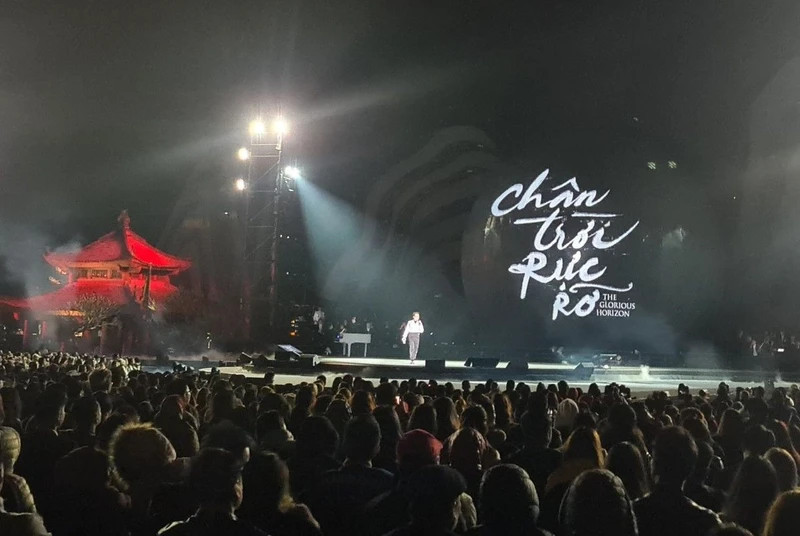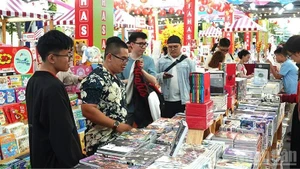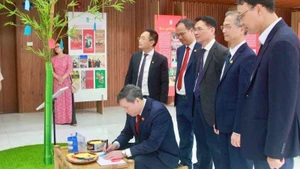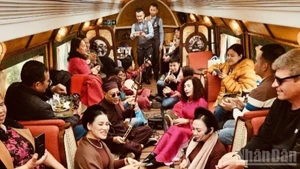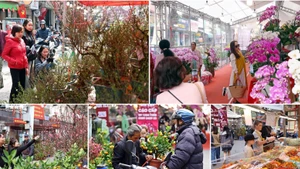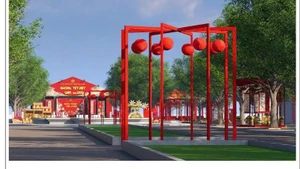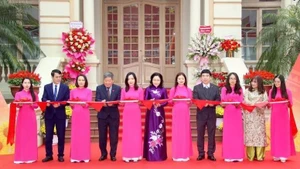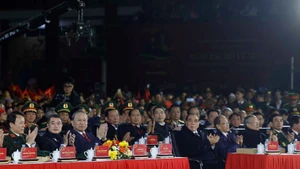How to unleash all resources and create a runway for the cultural industry to “take off” is one of the top priorities.
After eight years of implementing the national strategy for developing Vietnamese cultural industries till 2020 with a vision towards 2030, according to Decision No. 1755/QD-TTg (dated September 8, 2016), Vietnam has had movies with revenue of several hundred billion VND, music concerts attracting tens of thousands of participants, and live shows that impressed international media.
The number of creative enterprises, creative cities, and creative spaces is constantly increasing, contributing to the formation of a diverse cultural and creative ecosystem across the country.
However, compared to the potential and large space for developing Vietnam's cultural industry, the results achieved are still very small. That is the reason why the prime minister issued Directive No. 30/CT-TTg (dated August 29, 2024) on the development of Vietnam's cultural industries, aiming to create a lever for the cultural industry to make new strides.
The directive sets out the strategic direction of developing cultural industries must ensure maximum and effective exploitation of potentials and advantages; diversity, multi-sector and multi-field linkage; having sharp thinking, drastic and effective actions, knowing how to select the best and create breakthroughs in development; meeting the following factors: creativity, identity, uniqueness, professionalism, healthiness, competitiveness, and sustainability on the basis of ethnicity, science, and mass; and gradually building a national brand, participating in the global value chain, in accordance with the laws of the market economy as well as domestic and international laws.
The directive also sets out specific and clear requirements for each government agency, ministries, branches, and related organisations.
Participating in the conference to implement Directive No. 30/CT-TTg of the prime minister which was recently organised by the Ministry of Culture, Sports and Tourism in Da Nang, many experts frankly pointed out the "bottlenecks" that need to be removed and offered advice for the development of Vietnam's cultural industries.
Emphasising the role of creating an environment to stimulate creativity, musician Quoc Trung affirmed: To have a cultural industry, there must be top-notch art and creativity. For a long time, we have been optimistically listing many potentials from folk cultural treasures, historical traditions, but rarely mentioned the limitations in the process of managing, applying and exploiting these values.
Therefore, it is necessary to frankly point out the shortcomings in policies to create a new environment, helping producers and artists have better creative conditions, aiming to build top-notch works and projects.
According to musician Quoc Trung, to develop the cultural industry, it is important to gather and mobilise the creativity of the creative team and identify people with aspirations and the ability to lead and orient the development of the industry.
Currently, a significant portion of the creative team is outside of state-owned art units, so it is necessary to remove the boundaries between inside and outside the state, creating connections to mobilise deep and wide participation of creative people.
The Government and the Ministry of Culture, Sports and Tourism need to have more reforms in regulations on public-private cooperation, not only in terms of material aspects but also in creative work; boldly assign many social organisations to participate in public investment projects, creating healthy and fair competition.
Musician Quoc Trung also proposed that there should be institutions and regulations for the establishment of cultural funds, centres for promoting connections and supporting Vietnamese artists to have favourable conditions in contacting, exchanging, and interacting with the international environment to learn civilised working processes, improve creative capacity and gradually integrate.
Based on the fact that the connection between ministries, branches, localities, organisations and individuals operating in the cultural industry in our country is still loose, leading to the inability to connect the subjects to participate and contribute to the cultural industry value chain, Tran Thi Phuong Lan, Director of the Department of Culture and Arts, Central Propaganda Department, said that it is necessary to study and propose to competent authorities to consider and establish a National Steering Committee for the development of cultural industries in Vietnam.
It is necessary to establish specialised groups responsible for promoting and strengthening cooperative relationships and implementing activities on the development of cultural industries.
Sharing the same view, Pham Minh Toan, General Director of VietFest, also affirmed the necessity of establishing a national committee in charge of planning, supervising, and supporting cultural activities, ensuring the sustainable development of the cultural industry, similar to the way the Government of Thailand established the Creative Culture Agency to promote cultural and creative industries, through financial and technical support solutions such as tax exemptions to attract international events, developing technological infrastructure for production and distribution of cultural products.
Based on analysing cultural industry development models in some countries such as the Republic of Korea, Japan, and China, the General Director of VietFest proposed that Vietnam needs to identify key cultural industries of the country and each locality based on internal strengths and international trends to avoid spreading investment.
At the same time, it is necessary to develop financial support policies, taxes, and protection mechanisms for businesses and creators in the cultural industry, encouraging businesses to invest in the cultural industry through tax incentives and funding.
On the other hand, it is necessary to have a strategy to improve the quality of human resources in the cultural industry by strengthening education and training on culture, arts and creative industries in universities and training centres.
It is necessary to develop specialised training programmes on cultural management, digital arts and cultural marketing combined with the development of international cooperation programs; along with that, it is necessary to bring artists and cultural managers to participate in international courses and exchange programmes to learn from experiences in developing the cultural industry.
